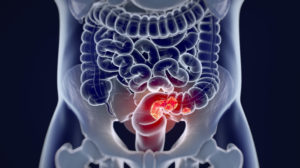Porcine epidemic diarrhea virus (PEDV), a highly contagious swine coronavirus, first emerged in America in 2013. The outbreak caused high death rates in the pork industry escalating from the US to Mexico and Canada.
Although experts believe PEDV cannot be transmitted to humans, like other coronaviruses, they are noted for their capacity to suspend innate immune response, giving rise to an infection’s persistence and severity.
Despite best efforts, no definite drug treatment has been developed, and therefore the disease remains challenging to control.
Read the original publication of this study here: [N6-methyladenosine regulates PEDV replication and host gene expression]
This study aimed to understand better the biological processes and biological changes, particularly epigenetic modifications, involved in PEDV.
N6-methyladenosine regulates PEDV replication and host gene expression
The study investigated the most prevalent RNA modifications, N6-methyladenosine (m6A), discovered in virus infections almost 50 years ago.
While m6A modification has been previously related to other viruses such as HIV and influenza, this was the first research to be conducted regarding the prevalence, host response, and viral regulation of M6A in a coronavirus.
The study of epigenetic processes, such as DNA and RNA methylation, has shed light on the causes of some viral infections. m6A is the amplest chemical modification of RNA or mRNA that can change gene expression.
Researches set out to determine if m6A was in the PEDV genome and how the modification acted on viral replication. They determined that m6A was present in the genomic RNA of PEDV and around 0.05–0.06% of the total adenosines.
Further investigation showed that m6A decreased PEDV replication in different cell lines.
m6A is regulated by three protein groups, including methyltransferase and demethylases. This study found that reducing methyltransferases METTL14 and METTL3 increased replication; however, the knockdown of demethylase FTO subdues replication.
The percentage of m6A modification also increased during PEDV infection while FTO decreased. Host response was reversed during FTO expression, which shows that m6A has a significant part in regulating host viral replication.
Takeaways:
- N6-Methyladenosine (M6A) regulates host and virus response in Porcine epidemic diarrhea virus (PEDV).
- This is the first to recognize the m6A modification in a coronavirus and its function for regulating both virus and host response. This can now be explored further on other coronaviruses, particularly the COVID-19, novel SARS-CoV-2.
- The findings from this study will make it easier to understand the role of m6A and widen our knowledge on virus-host exchange at the RNA level.
You can read the original publication of this study here: [N6-methyladenosine regulates PEDV replication and host gene expression]





